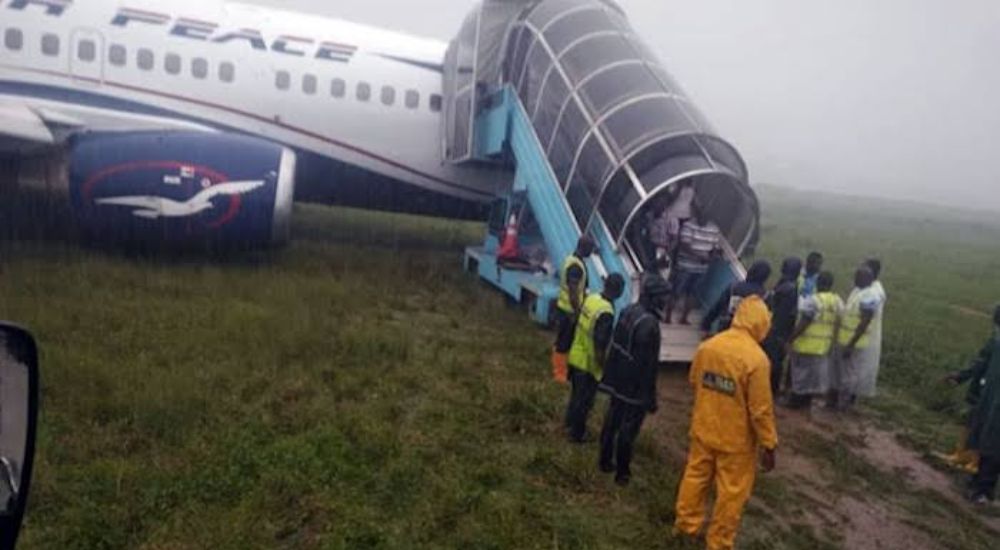Pilots Tested Positive for Alcohol in Air Peace Runway Incident — NSIB Report

By Kamal Yalwa | Lagos, Nigeria
The Nigerian Safety Investigation Bureau (NSIB) has released its preliminary report on the July 13 runway overrun involving an Air Peace Boeing 737-500 at Port Harcourt International Airport, revealing critical safety lapses — including alcohol and drug use among crew members.
The flight, which departed Lagos with 96 passengers and seven crew members, landed under reportedly clear weather conditions. However, investigators found that the aircraft touched down nearly three-quarters down the 3,000-metre runway, leaving insufficient distance for a safe stop. The plane skidded off the paved surface onto a grassy area. No injuries were reported.
Alcohol, Cannabis Found in Crew Tests
In a troubling revelation, toxicology tests conducted after the incident showed that both pilots tested positive for alcohol, while a cabin crew member tested positive for cannabis. The NSIB described this as a “serious breach of aviation discipline and safety culture.”
According to the report, the first officer had recommended a go-around after assessing the approach as unstable. However, the captain — a 64-year-old veteran with over 10,000 flight hours — reportedly dismissed the advice and proceeded to land, resulting in the runway excursion.
Aviation analysts have warned that such breakdowns in cockpit communication and chain-of-command dynamics are hazardous and can lead to preventable accidents.
NSIB Issues Directives to Air Peace
In response to the findings, the NSIB has directed Air Peace to take immediate corrective actions, including:
- Strengthening crew fitness screening protocols to prevent substance-impaired operations.
- Reinforcing training programs on go-around decision-making, particularly emphasizing the need to abort landings during unstable approaches.
“Flying demands absolute discipline. There can be no compromise when safety is at stake,” the Bureau emphasized.
Though no lives were lost in the incident, aviation stakeholders say the findings raise serious concerns about flight crew oversight and substance abuse within Nigeria’s aviation industry.
Broader Implications for Nigerian Aviation
The incident adds to mounting pressure on Nigerian carriers and regulators to tighten safety enforcement. Industry observers are calling for a comprehensive review of crew monitoring systems, enhanced oversight by the Nigerian Civil Aviation Authority (NCAA), and stiffer penalties for safety violations.
As investigations continue, the NSIB is expected to release a full report with further recommendations in the coming months.


